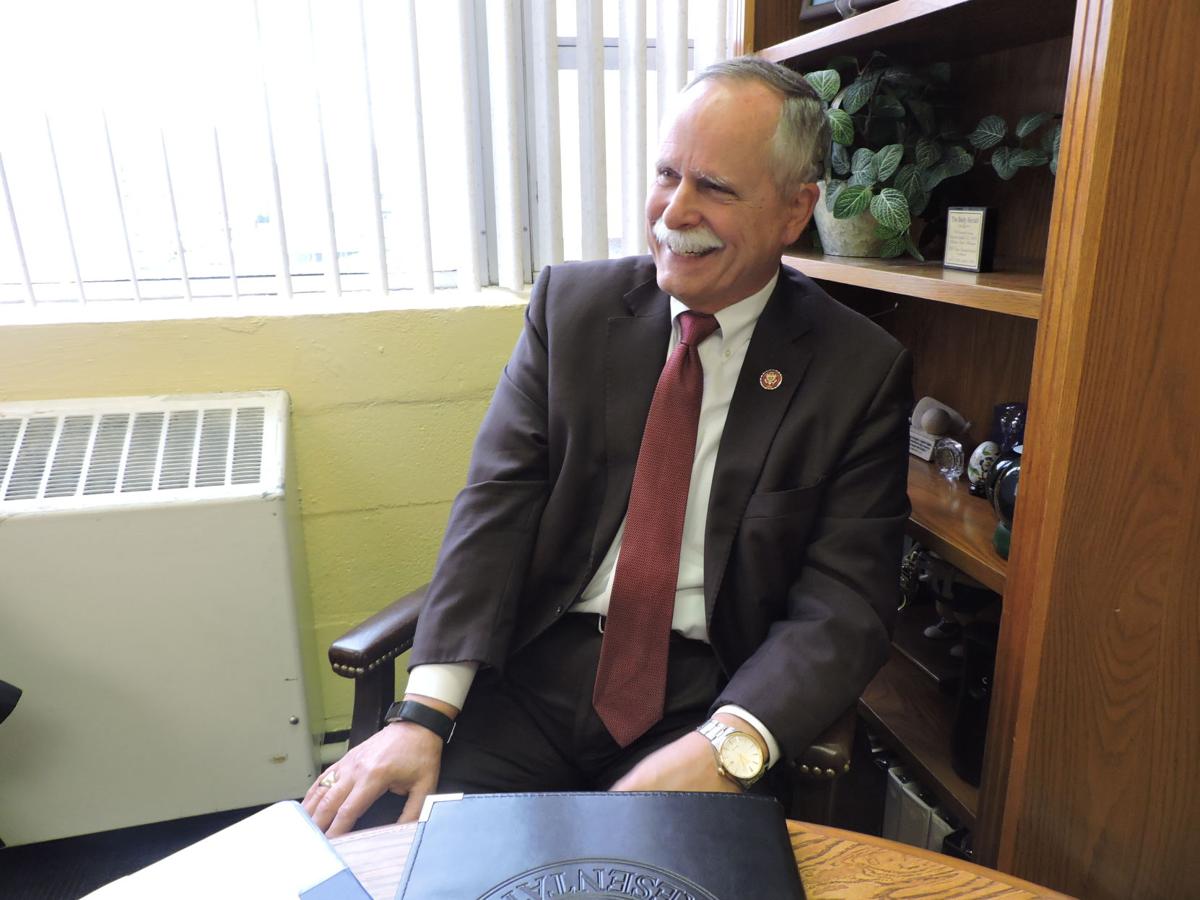West Virginia Rep. Bill Would Preserve Coal, Natural Gas Jobs

By David Kirk
June 2, 2021 - U.S. Rep. David McKinley, R-1, says President Biden’s plan to create a carbon pollution-free power sector by the year 2035 is not realistic.
The White House recently released a detailed “fact sheet” laying out specifics on how exactly the president expects to meet the carbon pollution-free goal by 2035 and the goal of a net zero emissions economy by no later than 2050. The proposal suggests entirely abandoning fossil fuel sources.
McKinley, who is a member of the House Energy and Commerce Committee, said in an interview with the Times West Virginian editorial board Tuesday that these deadlines aren’t realistic and are nothing but political.

U.S. Rep. David B. McKinley, R-1, met with the Times West Virginian Editorial Board Tuesday where he discussed a bill he has drafted to innovate the U.S. energy economy.
“I’m OK with setting some kind of deadlines that are reasonable, and not driven by politics,” McKinley said. “I want them driven by science.”
The House Energy and Commerce Committee, led by U.S. Rep. Frank Pallone Jr., D-N.J., is currently pushing a bill that is more in line with Biden’s stipulations. House Resolution 1512, Pallone’s own bill, which is due to head for a vote in Congress once out of committee. However, McKinley predicts HB 16512 will die in the U.S. Senate.
“Aging infrastructure, tight state and local budgets, family budgets stretched to the limit, and climate change are all making the situation worse,” Pallone said in his opening statement at the legislative hearing for his bill. “Fortunately, the legislation we will consider today can help.”
Pallone’s CLEAN Future Act looks to, as best it can, adhere to Biden’s reduction target goals. McKinley said he has a bill ready to send out if and when Pallone’s fails and he feels that if Pallone’s bill dies in the Senate, his bill, House Resolution 1761, be next in line. Known as the CCUS Innovation Act, McKinley’s bill would focus on carbon capture, what he calls new source review or NSR and carbon capture storage. He also believes his bill can get enough bipartisan support to make it through Congress.
“We keep fossil fuels in the mix,” he said.
McKinley originally presented the bill last year but, he said, it was unfinished and needed work at the time, but now says it’s in much better shape.
McKinley’s bill focuses on a mindset of “innovate first, regulate later” and he believes very strongly that the only way to achieve lower carbon emissions is through carbon capture research so the U.S. can continue to use its current infrastructure but just use it in a cleaner way.
“We’re going for 10 years of research, then develop a clean energy standard, or CES,” McKinley said. “That will say we are going to reduce carbon emissions by 80% by 2050.”
McKinley hopes the energy sector will underestimate and overdeliver. Much of the energy sector believes that reaching a carbon pollution-free goal by 2050 is very realistic, unlike Biden’s proposed target of 2035. First Energy, owner of Mon Power, has already pledged to be carbon neutral by 2050.
“Utility [companies] are excited about it, they think that’s a real possibility compared to 100% by 2035” McKinley said. “If we tell them 2035 they’ll just flip the switch and turn [the power plants] off. Every power plant in West Virginia would be shut off.”
One of McKinley’s major concerns for Biden’s plan is what will happen to the West Virginians who currently work in the fossil fuel industry — natural gas and coal.
Although, in the fact sheet released by the White House, the proposal has an extensive section detailing the wealth of jobs the investments in renewables will create.
However, the fate of the Clean Future Act is yet to be determined at it makes its way through Congress.

